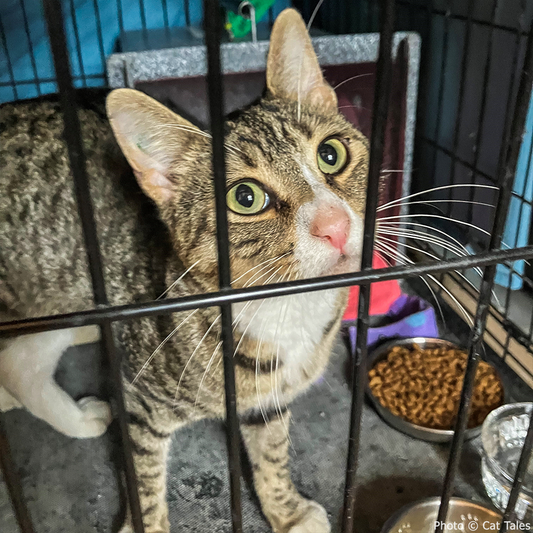Help Rehabilitate Injured Bald Eagles So They Can Regain Their Wings
Michelle Milliken
Bald eagles often end up at wildlife rescues, sometimes due to lead poisoning or environmental pollutants, sometimes due to human-related incidents. The Humane Indiana Wildlife Rehabilitation and Education Center is one wildlife rescue that takes them in, and, with your help, we’re ensuring they have what they need to care for these birds.
Humane Indiana Wildlife – located in Valparaiso - has already had nearly half a dozen bald eagles come through its doors this year. That’s compared with an average of just 1.5 per year over the past decade or so. The most recent was found by a pair of runners near a game bird habitat area in Michigan City. It was soaking wet and barely conscious, lying in a ditch. The bird was taken to a barn and set on a heating pad until the rescue could take it in.
 Photo: Humane Indiana Wildlife Rehabilitation and Education Center
Photo: Humane Indiana Wildlife Rehabilitation and Education CenterHumane Indiana Wildlife says, “Within 45 minutes we were able to get the eagle back to our center where it was placed in our oxygenator with heating pads to slowly raise its body temperature back up to the normal 106°F! After roughly an hour the eagle had begun opening its eyes and trying to stand. At that point it was removed from the oxygenator and placed in a hospital cage on supplemental heat. We also provided warm sub-q fluids, and checked for lead toxicity (none) and the presence of rodenticide poison (none) in its blood.
"While certainly not out of the woods, the eagle's body temperature has returned to normal and it is much more alert and trying to stand. There is really no telling how long it had been laying in the flooded ditch, but this bird is very lucky to be alive right now.“
 Photo: Humane Indiana Wildlife Rehabilitation and Education Center
Photo: Humane Indiana Wildlife Rehabilitation and Education CenterWhile they care for birds like this eagle, the center makes use of enclosures where animals stay as they’re rehabilitated to be sent back out into the wild. That’s where your support has come in. We’re teaming up with Humane Indiana Wildlife and Greater Good Charities on a Rescue Rebuild project to ensure they have enough sturdy enclosures to support the roughly 150 species of animal that come through the rescue each year. That includes birds like raptors, larks, kestrels, jays, crows, and songbirds but also mammals like squirrels, raccoons, opossums, beavers, and foxes.
In June, we’ll be working to create enough room for these animals, which can come from more terrestrial locations or from along the shores of nearby Lake Michigan, by building three new enclosures and renovating four others.
The new enclosures will measure 19’ by 4’ by 8’ and feature a 2’ predator protection component on the bottom to keep ground birds safe. Two will have pea gravel, but one with be equipped with sand for Lake Michigan-area species. There will also be a new waterline built out to the enclosures to allow for easier cleaning and fresh water for birds. As for the four renovated enclosures, roofs and wires will be repaired to keep the space safe for animals as they rehabilitate.
 Photo: Humane Indiana Wildlife Rehabilitation and Education Center
Photo: Humane Indiana Wildlife Rehabilitation and Education CenterThe center's work with these animals also supports the environment, as their samples are provided to researchers to better understand the health of Indiana ecosystems. Their contributions have helped increase knowledge on area lead poisoning, as one example.
Your support makes projects like this possible. It also helps care for area habitats, as Humane Indiana Wildlife cares for other raptors, which play a key role in controlling their prey species' populations and regulating ecosystems. Unfortunately, they face threats including lead poisoning, environmental pollutants, trophy killings, and collisions with power lines.
If you’d like to help further by supporting Humane Indiana Wildlife’s care for bald eagles, like the one recently rescued, click below!
Michelle has a journalism degree and has spent more than seven years working in broadcast news. She's also been known to write some silly stuff for humor websites. When she's not writing, she's probably getting lost in nature, with a fully-stocked backpack, of course.




















